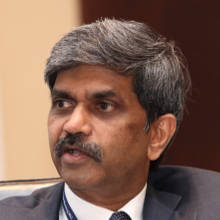[From Unsplash]
In today’s professional world, you are on your own—in your career, in your life and hence the need to build your personal brand for success.
What is a personal brand and where did it start?
In the past, personal branding was the privy of great kings, philosophers, political leaders, movie stars and sports stars. The image of the political leader, movie star and sports star was carefully cultivated via a friendly fourth estate with appropriate leaks and aura building. Many Indian businessmen followed a similar path by befriending editors and journalists.
Enter social media and this veneer of self-creation via media has evaporated. Trust in traditional media has dropped over the years. Today, if you are a known name, then everyone is watching you, taking pictures and posting about you with their take on you. In the past personal branding was what you said about yourself, today, it is the intersection of what you say about yourself and what others say about you.
Most personal brands thrive in the lifetime of the person; some go beyond when their thought is meaningful years later. Gandhi, Mandela, Obama, Churchill, are good examples.
An always on social media world is different. Most professionals are on Linked in, Instagram, YouTube, Facebook, and some have a website. The avenues to build a personal brand are open and appealing.
Your first level of personal branding starts with the school and college you went to. A good school/college is an advantage but not a must. This is a good first personal brand network and opens the most doors. This group also knows you more as a person.
Your second level of personal branding comes from the companies you worked in, the roles you did, and the impact created. Do not be hyperbolic about your impact. This network will have both supporters and detractors. This group will know you more as a professional.
The third level of personal branding comes with the industry associations or your involvement in the ecosystem or/and the nonprofit work that you volunteer for. This network is a supportive one. It is a group of give and take.
The fourth level of personal branding comes from the honours and awards you picked on the way or board memberships for senior managers. There are many paid awards—avoid them. The more paid awards you have the less credible your personal brand.
Building a strong personal brand takes time, effort, and sacrifice. Learnings from B2C and B2B brands are helpful:
- Be clear what you stand for; if you don’t stand for something, then you will fall for anything.
- Be authentic, be yourself and don’t pretend to be someone you are not.
- Be visual—your posts should be visual; visual posts hold better attention (I am not that visual).
- What works and what doesn’t work in social media is like the movies—you never know, there is no formula. Some inane posts do very well, and some profound posts don’t get attention.
- Contribute to the social media ecosystem where possible.
- You need to be disciplined—you need to be regular and not sporadic. Your followers will forget you if you are irregular.
- You must be consistent and persistent with your narrative.
- When you post, try and imagine a headline if someone were to write an article. Can you live with that headline?
Here are some don’ts to think about:
- Don’t be over the top on any topic.
- Don’t mark a hundred people in your posts.
- You don’t need to opine or reply on every post you are marked on. The mutual back-scratching river overflows on social media. And a lot of that is fake!
- There is a thin line between self-promotion/bragging and reputation building posts.
- Avoid sensitive topics which divide people. You might have a view, but it is better kept to yourself.
- Don’t be sycophantic—you don’t need to like every post of your boss or company, and you don’t need to forward your boss’s posts. Your social media is not a mouthpiece either for your boss or your company. There is a boundary between being proud of what your company does and being sycophantic.
- Don’t worry if you have a better personal brand than your boss. That’s his/her problem, not yours.
Have clear principles that you will adhere to. For example, I never delete any comment, positive or negative, from my posts. Don’t worry about negative comments, it’s part of the deal. I, however, delete any comment that’s trying to use my posts to sell/advertise something. I respond individually to people when needed; I never do commodity “thank you” replies. I avoid any discussion on religion, class, sex, politics. I might have a view, but I am not qualified to speak on these topics.
Social media gives your personal brand a voice but use it well. Your voice should rise above the din and not get drowned.
Go out and build your personal brand. It’s the best investment you can make after investment in learning. All the best.


